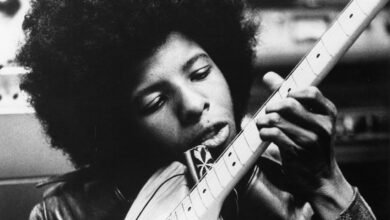
On Sunday, in a shocking result, the New Popular Front, a coalition of the French left and center, beat back the country’s ascendant far right in the second and final round of snap legislative elections that had been called by President Emmanuel Macron. His decision to call the election came after the far right notched major gains in European Parliament elections in June. Most observers did not understand why Macron—an unpopular centrist who formed his own party and won the Presidency in 2017, and again in 2022—had taken such a gamble. And, indeed, the far right did quite well in the first round of elections a week ago. But the willingness of the left parties—which range from the far-left La France Insoumise to the center-left Socialist Party—to coalesce, and then to join forces with the center, made all the difference. The left won the most seats, at a hundred and seventy-eight, followed by Ensemble, Macron’s centrist alliance (a hundred and fifty), and then the far-right National Rally (a hundred and forty-two). Now Macron faces a different set of problems: a resurgent left, and no clear majority for any grouping in the legislature.
On Monday, I spoke by phone with Arthur Goldhammer, a senior affiliate at the Center for European Studies at Harvard, who writes frequently on French politics and is a prolific translator of French books. During our conversation, which has been edited for length and clarity, we discussed whether Macron’s risky gamble paid off, why the French left and center might have trouble forming a long-term alliance, and why the French far right remains a threat going forward.
Did the polls and the predictions of right-wing success get this wrong because the vote was shocking in a way that couldn’t have been predicted? Or was this outcome the logical result of the left and the center uniting, but there just wasn’t time to properly poll or figure out what that alliance meant?
Well, I can begin by saying that I was personally stunned, and I believe that most of the polling institutes that try to make predictions based on some kind of empirical reasoning were also stunned. The New Popular Front functioned extraordinarily well, and surprisingly so, since the parties that constituted that front are really at each other’s throats most of the time, and don’t agree about much of anything. But the one thing they do agree about is the necessity of stopping the National Rally. So they came together and did just that. But I think it’s fair to say that almost all observers were shocked.
Does the result suggest that Macron was right in some way to have called an election? Macron seemed to be saying, when he called elections—and I think a lot of people thought this bordered on the delusional—that this was a crucial moment, that he trusted the French people, and that the French people would make their voices heard by rejecting the far right. Even if this result was not something Macron exactly wanted, with the left outpacing the center, was he right?
He was right in the sense that he was probably going to have to dissolve the legislature anyway. In the fall, there is definitely going to be a vote on the budget. There would likely have been a no-confidence vote at that point, and the government would’ve toppled. So he would’ve had to face the same situation that he faces now. So I think his thinking was, “I’ll catch the parties on the wrong foot and proceed from there.” What he did not expect was that the left would get its act back together. The four major parties that comprise the New Popular Front were part of a previous alliance which had collapsed, and I think he expected it to stay collapsed because of the bitter invective that had flown back and forth between those parties. So, in that sense, you can understand his strategy. You can also say he won his bet in that he showed that two-thirds of the French are still opposed to seeing a government of the far right.
However, he’s now left with a totally unworkable situation. It’s fairly hard to see how he can put together any sort of governing coalition. The left has the largest number of seats, but that’s far short of the two hundred and eighty-nine needed for an absolute majority. In the Parliament that he just dissolved, his own party, Ensemble—it’s changed its name several times, but let’s call it Ensemble—had nearly two hundred and fifty seats. So he was much closer to a working majority then than he is now.
If you are saying that you think an election would’ve come up in the fall regardless, it does then suggest to me that this was a smart move. Because, if there had been a vote then, it seems like it would have been around the issue of Macron’s budget, which I imagine is going to be pretty unpopular, rather than the threat of the far right, which is what he was able to make this election about.
Yeah, if it had come up in the fall, it would’ve been a referendum on Macron’s government to this point, and he’s very unpopular. His pension reform, which was pushed through without a majority, under a special provision of the French constitution, was extremely unpopular. And in that sense, he was able to transform the central question from “Do you like Macron?” to “Do you want to stop the National Rally?” So, O.K., I’ll grant you that it was a smart move in that sense, but I wouldn’t want to go as far as saying that he had all this cleverly figured out and that he decided that this was his best strategy. I think he’s a high-risk player. He rolled the dice thinking that he would come out ahead, and he proved his point that the far right is still unpopular. But he himself remains unpopular, and finds himself in an almost untenable position.
Maybe this is a naïve question when it comes to someone like Macron, but wouldn’t one possibility have been to neither call for elections nor face a no-confidence vote in the fall but, instead, to try to construct a budget that would meet a little bit more popular approval than seemingly everything else he does?
Well, that’s one possibility. Another possibility would’ve been to try to form a coalition government when he was in a position of relative strength with his own party. He was only thirty-nine votes short of an absolute majority. He could have reached out to someone on the left and tried to form a government on the left. He could have tried to form a coalition with the center right before they split, and in part went over to the far right. So he had options other than dissolution. If he had been a little more politically flexible, he might have found another way out of the crisis.
It seems that one issue with Macron possibly aligning with the left parties is that the far-left figure who leads the biggest left party at the moment, Jean-Luc Mélenchon, is not very popular and is pretty far left. Is that the main issue or are there more?
Well, Mélenchon is certainly one issue. I wouldn’t go quite as far in calling him unpopular as you do. He has a constituency of his own. He did fairly well in two Presidential elections, and there’s still people who are loyal to him in spite of everything. I think, on the other hand, he is a figure who repels many voters. I have one friend who votes in the center who said, when the R.N. was facing off against the New Popular Front, “We’re left with the choice between the plague and the cholera.” And for her, Mélenchon was the plague. So I think that captures the attitude of a certain part of the French electorate, that Mélenchon is just as unacceptable as the far right. The question is, would such a voter respond more favorably if the left is able to put together a coalition with the center from which Mélenchon is excluded?
I don’t know the answer to that. What’s more, the math is very difficult, because depending on how many people follow Mélenchon in rejecting such a coalition, you might or might not be able to reach an absolute majority. So everything depends on how the political figures who will make up the possible new coalition would react to the exclusion of Mélenchon.
What, specifically, is it that makes Mélenchon so toxic suddenly to many French people, in your mind?
Well, first of all, just as is the case with Macron, he has an abrasive personality. He often attacks the press. He’s egocentric. He runs his party in an authoritarian manner. In fact, when it came to choosing people to run in the first round of this legislative election, he excluded some members of his own party who were already sitting in parliament, which was a ruthless thing to do. They were people who had been critical of his leadership and he replaced them with loyalists. So he’s seen as a little tyrant within his own world. On the other hand, he has a very loyal following, particularly in the suburbs of large French cities with large immigrant populations. His resistance to Israeli retaliation for the Hamas attacks and his refusal to call Hamas a terrorist organization has made him popular with those people who are strongly opposed to what Israel is doing in Gaza. So that more or less defines this figure at the moment.
Source link







